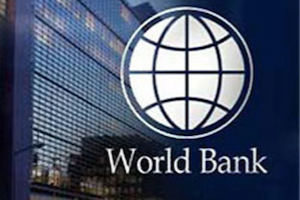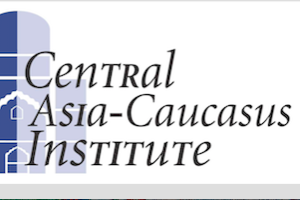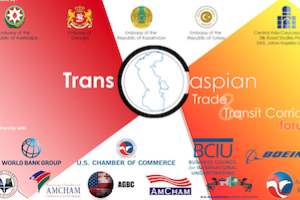The fallacy of ‘compartmentalisation’: the West and Russia from Ukraine to Syria
European View, June 2016, Volume 15, Issue 1, pp 97–109
Svante E. Cornell, The fallacy of ‘compartmentalisation’: the West and Russia from Ukraine to Syria
In the post-Soviet space as well as the Middle East, Western leaders have largely failed to heed ample evidence that the goals of the Russian leadership are fundamentally opposed to those of the EU and the US. Whereas Moscow seeks to counter Western influence and roll back the US’s role in the world, the West has proposed a win–win approach, seeking to convince Moscow that its ‘true’ interests should lead it to cooperate with the West. When this has not worked, Western leaders have ‘compartmentalised’, isolating areas of agreement from areas of disagreement. This approach has come to the end of the road because the assumptions that undergird it are false. So long as Western powers fail to understand the fundamental incompatibility of their interests with the deeply anti-Western interests of the current power brokers in the Kremlin, they are unlikely to develop policies that achieve success.
Svante E. Cornell is Director of the Central Asia-Caucasus Institute & Silk Road Studies Program, a Joint Center affiliated with the Johns Hopkins University’s School of Advanced International Studies and the Stockholm-based Institute for Security and Development Policy.
Central Asia and the Caucasus: From Independence to Interdependence Presentations by Spring 2016 Rumsfeld Fellows
CACI FORUM
Central Asia and the Caucasus:
From Independence to Interdependence
Presentations by Spring 2016 Rumsfeld Fellows
Wednesday, 27 April, 2016, from 5 to 7 p.m.
(reception at 5 p.m., followed by the main program at 5:30)
The fall of the USSR enabled peoples of Central Asia and the Caucasus (Greater Central Asia) to claim full independence and sovereignty. While bringing many obvious benefits, the strengthening of new sovereignties has also brought self-isolation and rivalry among peoples who had actively interacted for hundreds of years before the Russian conquest. The resulting isolationism has created needless tensions in the region, deepened poverty, and fostered religious radicalization. Meanwhile, geographic proximity, interdependent infrastructure, and the presence of Russian media have maintained ties with Russia and rendered them appealing to many.
Is it time to shift from the radical independence to intra-regional dialogue and economic integration within the region? And for the region as a whole to capitalize on its strategic location, cultural diversity, and human capital?
Twelve participants of the Spring 2016 Rumsfeld Fellowship Program, representing nine countries of Central Asia and the Caucasus, will share their answers to these questions.
A video recording of the event may now be viewed on the SAIS Events YouTube channel.
Speakers:
Mr. Ozodkhon Davlatshoev (Tajikistan)
Mr. Nemuun Gal (Mongolia)
Mr. Emil Gasimli (Azerbaijan)
Mr. Sulkhan Glonti (Georgia)
Ms. Raykhona Khashimova (Uzbekistan)
Ms. Eliza Nishanbaeva (Kyrgyzstan)
Mr. Mahmood Noorzai (Afghanistan)
Mr. Rakhim Oshakbayev (Kazakhstan)
Ms. Lilit Petrosyan (Armenia)
Mr. Ruslan Ramanov (Uzbekistan)
Mr. Narantuguldur Saijrakh (Mongolia)
Mr. Barry Salaam (Afghanistan)
Moderator: S. Frederick Starr, Chairman, Central Asia-Caucasus Institute
SAIS - Johns Hopkins University
1619 Massachusetts Ave., NW
Washington, DC 20036
TRANSIT FORUM: Trans-Caspian East-West Trade and Transit Corridor
TRANSIT FORUM with the Embassies of Azerbaijan, Georgia, Kazakhstan, and Turkey
Thursday, 28 April, 2016, from 8 a.m. to 4 p.m.
The Central Asia, Caspian, South Caucasus and Black Sea regions together form a strategically important transit corridor between China and Europe. Connecting trade, people and economies, the modern trans-Caspian trade and transit routes from China to Europe, envisages an extensive and integrated network of infrastructure, special economic zones, harmonized customs, and cross-border procedures along this route.
Azerbaijan, Georgia, Kazakhstan and Turkey combined represent a market of more than 110 million consumers. These countries are able to offer customized and integrated solutions to companies with highly sophisticated supply chains.
Video of the forum can now be viewed on the SAIS Events YouTube channel.
On Thursday, April 28, 2016, the Embassies of Azerbaijan, Georgia, Kazakhstan, and Turkey to the U.S.A., are organizing the “Trans-Caspian East-West Trade and Transit Corridor” Forum in Washington, D.C., in partnership with the World Bank Group, U.S. Chamber of Commerce, Business Council for International Understanding, Boeing Company, U.S.-Azerbaijan Chamber of Commerce, AmCham Azerbaijan, America-Georgia Business Council, U.S.-Kazakhstan Business Association, AmCham Kazakhstan, AmCham Georgia, and Turkish-American Business Association/AmCham Turkey.
This special all-day forum, hosted by the Central Asia and Caucasus Institute at SAIS-Johns Hopkins University, will introduce projects and investments along the modern Silk Road to U.S. business leaders across a variety of multinational industries.
Speakers at this special forum include: Ambassador Elin Suleymanov, Azerbaijan; Ambassador Archil Gegeshidze, Georgia; Ambassador Kairat Umarov, Kazakhstan; Ambassador Serdar Kılıç, Turkey; Mr. Gary Litman, VP, US Chamber of Commerce; S. Frederick Starr, Chairman, Central Asia-Caucasus Institute, JHU-SAIS; Dr. Taleh Ziyadov, Director-General, Baku International Sea and Trade Port; Mr. Rauf Valiyev, Chairman, Azerbaijan Caspian Shipping; Mr. Mamuka Bakhtadze, CEO, Georgian Railways; Ms. Ketevan Salukvadze, Head of Transport Policy Dept., Ministry of Economy and Sustainable Development; Mr. Askar Mamin, President, Kazakhstan Railways; Mr. Sanzhar Yelubayev, President of KTZ Express; Mr. Osman Nuri Beyhan, Deputy Director General for EU and International Affairs, Ministry of Customs and Trade; and others TBA.
Schedule, Thursday, 28 April 2016:
8:00 - 9:00 a.m. Continental breakfast
9:00 - 10:00 a.m. Welcome by the Central Asia-Caucasus Institute, the US
Dept of State, Ambassadors of Azerbaijan, Georgia,
Kazakhstan, and Turkey, and representatives from the US
Chamber of Commerce
10:00 - 11:00 a.m. Panel #1: "Trans-South Caucasus Customs and Trade
Facilitation: What Needs to Be Done?"
Moderator: S. Frederick Starr
11:00 - 11:25 a.m. Q & A
11:25 - 11:40 a.m. Break (refreshments)
11:40 - 12:40 p.m. Panel #2: "'From Sea to Sea' Integrated Regional Transit
and Logistics Infrastructure."
Moderator: TBD
12:40 - 1:00 p.m. Q & A
1:00 - 2:00 p.m. Lunch served in the auditorium
2:00 - 3:00 p.m. Panel #3 "Commercial and Investment Opportunities:
Financing, Logistics, and Supply Chain."
Moderator: Jorg Frieden, Executive Director, The World
Bank Group
3:00 - 3:25 p.m. Q & A
3:25 - 4:00 p.m. Closing remarks
SAIS - Johns Hopkins University
1740 Massachusetts Ave., NW
Washington, DC 20036
Multiculturalism and inter-religious tolerance: the experience of Azerbaijan and its significance for Europe

Multiculturalism and inter-religious tolerance: the experience of Azerbaijan and its significance for Europe
Wednesday, Nov. 18, 2015, from 2 to 4 p.m.
On November 18, 2015, a delegation of religious dignitaries from Azerbaijan will visit Stockholm. The delegation consists of the Muslim mufti, Sheikh-ul-Islam Allahshukur Pashazade, as well as the Russian Orthodox Archbishop, the Catholic Nuncio, and the leaders of the community of Mountain Jews and the Community of European Jews of Azerbaijan, as well as the State Counsellor for multiculturalism and religious affairs. In a time when the greater Middle East suffers from escalating sectarian conflict, the Azerbaijani delegation provides a unique example of ethnic, religious tolerance and mutual understanding -- as recently showcased by Time Magazine.
A seminar will be held in Stockholm's Sheraton Hotel on November 18 between 14.00-18.00, which will provide the opportunity to discuss the Azerbaijani and Swedish experiences of multiculturalism and religious tolerance.
The Institute for Security and Development Policy is a co-organizer of this seminar in cooperation with the Embassy of Azerbaijan to the Kingdom of Sweden, and the Baku International Multiculturalism Center.
Conference program:
- 14:00 – 14:30 Welcome speeches
Kamal Abdullayev: Member of the Azerbaijan National Academy of Sciences
State Adviser on Inter-ethnic, Multicultural and Religious Affairs of the Republic of Azerbaijan (click for video)
Sheikh ul-Islam Allahshukur Pashazada
Chairman of the Caucasian Muslim Board
Dr. Adish Mammadov
Ambassador of the Republic of Azerbaijan to the Kingdom of Sweden (click for video)
Dr. Svante Cornell
Director of the Institute of Security and Development Policy (click for video)
- 14:30 – 16:00 Panel I
"Azerbaijan's experience of inter-religious tolerance"
Moderator:
Azad Mammadov
Executive director of Baku International Multiculturalism Center
Lectures:
Kamal Abdullayev: Member of the Azerbaijan National Academy of Sciences
State Adviser on Inter-ethnic, Multicultural and Religious Affairs of the Republic of Azerbaijan
Sheikh ul-Islam Allahshukur Pashazada
Chairman of the Caucasian Muslim Board
Alexander Ishein
Archbishop of the Baku and Azerbaijan eparchy of the Russian Orthodox Church
Ordinary Vladimir Fekete
Ordinary of the Apostolic Prefecture of the Roman Catholic Church in Azerbaijan
Milix Yevdayev
Leader of the Mountain Jews Religious Community
Gennadiy Zelmanovich
Chairman of the Baku Religious Community of European Jews
16:00 – 16:30 Break
- 16:30 – 18:00 Panel II
"Azerbaijani and Swedish models of multiculturalism: comparative analysis"
Moderator:
Dr. Svante Cornell
Director of the Institute of Security and Development Policy
Lectures:
Helene Egnell
The Centre for Inter Faith Dialogue
Göran Lennmarker
Former member of Swedish parliament, former president of the OSCE Parliamentary Assembly
Azad Mammadov
Executive director of Baku International Multiculturalism Center
Dr. Svante Cornell
Director of the Institute of Security and Development Policy
Stefan Gullgren
Deputy Director-General of the Swedish MFA, Head of Department for Eastern Europe and Central Asia
The working languages of the conference will be Azerbaijani and English.
The complete program is available here.
Location:
Sheraton Stockholm Hotel
Tegelbacken 6
10123 Stockholm, Sweden
Bridging the Gap: the Environment and Economic Development in Georgia

Bridging the Gap: the Environment and Economic Development in Georgia
Wednesday, November 18, 2015, from 5 to 7 p.m.
(reception at 5 p.m., followed by main program at 5:30)
Can economic development and growth be achieved under poorly managed environment with significant negative impact on health of population? Our speakers will discuss the World Bank's country environmental assessment report: Institutional, Economic, and Poverty Aspects of Georgia’s Road to Environmental Sustainability. Objective of the study was to analyze current status of the environment in Georgia and to demonstrate how environmental sustainability, economic growth, and prosperity can be mutually supportive goals. Study offers policies to address these problems.
A recorded version of this event may be viewed on the SAIS events channel.
Speakers:
Kulsum Ahmed
Practice Manager, Europe and Central Asia, Environment and Natural Resources Global Practice, The World Bank
Adriana Damianova
Team Leader of the CEA, Europe and Central Asia, Environment and Natural Resources Global Practice, The World Bank
Mamuka Tsereteli,
Research Director, Central Asia-Caucasus Institute
Moderator: S. Frederick Starr, Chairman, Central Asia-Caucasus Institute
Location:
Rome Building Auditorium
SAIS - Johns Hopkins University
1619 Massachusetts Ave., NW
Washington, DC 20036




